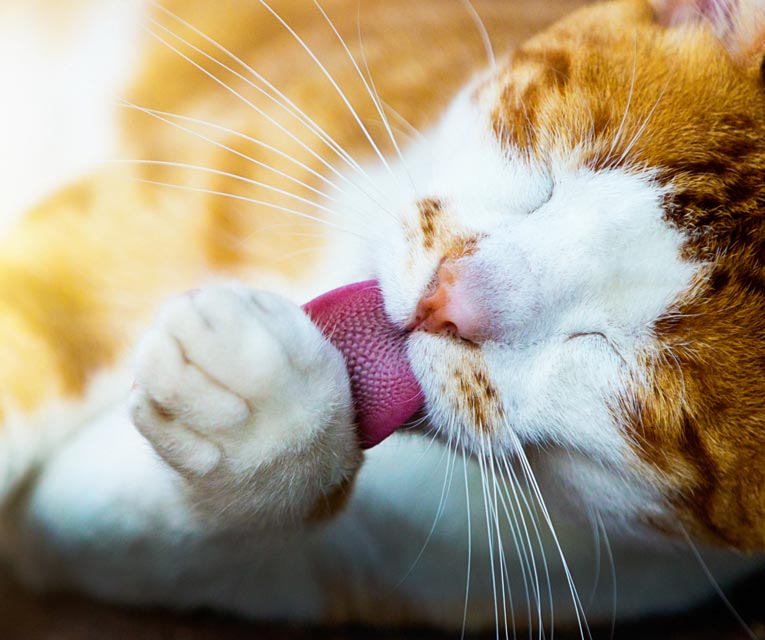Skin Abscesses in Cats

An abscess is an infected pocket. A skin abscess, also called a subcutaneous abscess, is a pocket of pus in the tissue under the skin. Cats often get them when they receive a bite from another cat.
Cause of Skin Abscesses in Cats
Cats' mouths contain a huge number of bacteria, and some of them are particularly nasty and prone to causing the development of pus. When one cat bites another cat, the biter's sharp, small teeth puncture the skin and deposit bacteria deep in the tissue. The skin heals over quickly because the wound is small, and the bacteria easily multiply. Soon, there is a big pocket of pus, called an abscess, there.
Cats can be quite territorial, so when a cat is allowed outside, there is a significant risk that they'll get into a fight and receive a bite wound at some point.
Cats can also get abscesses from the bites of animals other than cats, being poked by inanimate objects (especially outdoors), and even sometimes scratch wounds.
For more information about tooth root abscesses, check here: "Tooth Root Abscesses in Cats."
Signs of Skin Abscesses in Cats
Signs of a skin or bite wound abscess in cats include:
- Swelling of an area of skin
- Limping
- Guarding of an area of the body
- Lethargy
- Fever
- Inappetence
- Oozing (once the abscess breaks open)
Note: It can sometimes be challenging to find the tooth marks on the skin. Sometimes the veterinarian can find them once the abscess area is shaved.
Treatment of Skin Abscesses in Cats
Once a veterinarian determines there is an abscess, he or she will probably shave that area and lance or drain the abscess and then flush it out with clean water. That may require anesthesia if the cat is particularly painful.
Large abscesses may require surgery to open them up, remove dead or dying tissue, and place a temporary drain to keep the area open and help continuously remove the pus.
Hydrogen peroxide does not help clean out abscess wounds and will delay healing. Also, some cleaning solutions are toxic to cats, so don't use anything on the wound without checking with a vet first.
Injectable pain medications and antibiotics are likely to be administered to your cat, and you may need to continue giving some at home for a week or two. You will also need to keep your cat from licking or biting at the abscess area.
Some abscesses are complicated by the fact that there is a foreign body in the wound, such as part of a cat's tooth or a splinter. If that's the case, the abscess won't heal or will recur quickly after it does heal. Then, more extensive surgery is necessary to find and remove the foreign material. An x-ray may help find the foreign body if it's bone density.
It's important to remember that if another cat bit your cat, the abscess may not be the only concern. Feline viruses like FeLV and FIV can be transmitted through cat bites, and your vet may wish to test your cat for those viruses at intervals after a bite wound occurs.
You May Also Like These Articles:
FIV: Feline Immunodeficiency Virus




